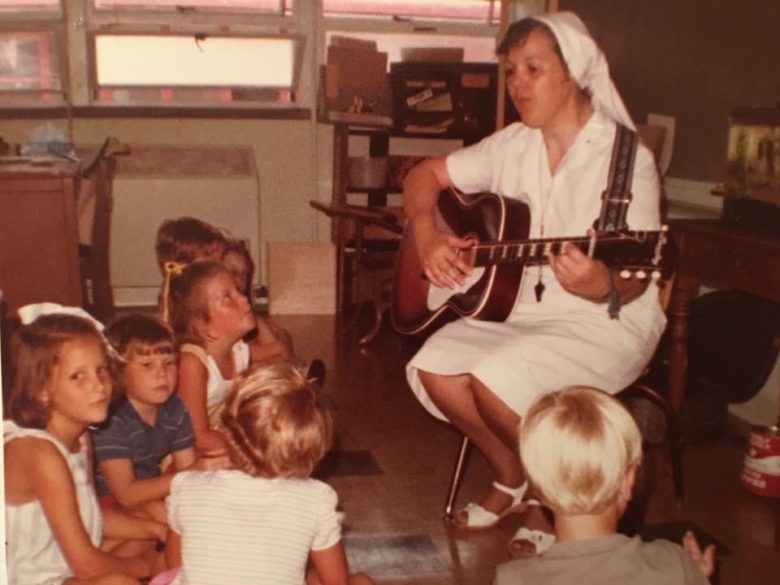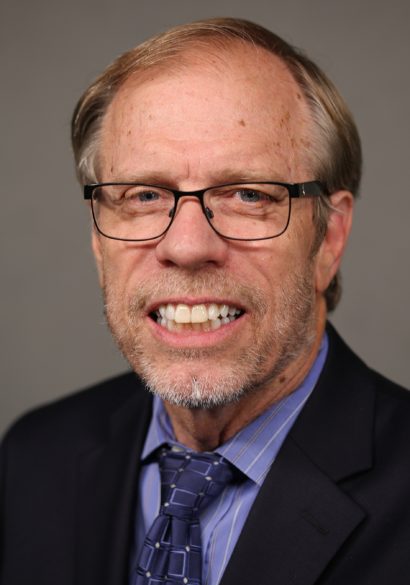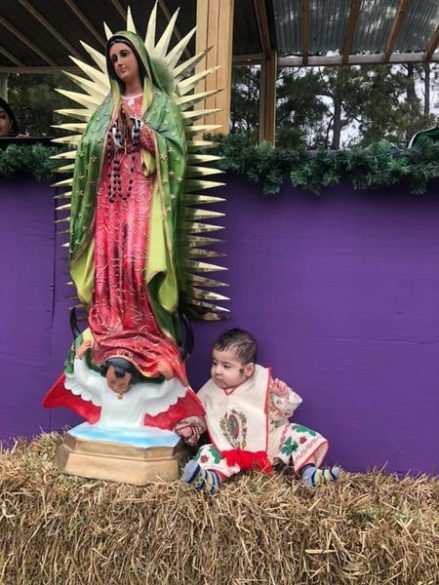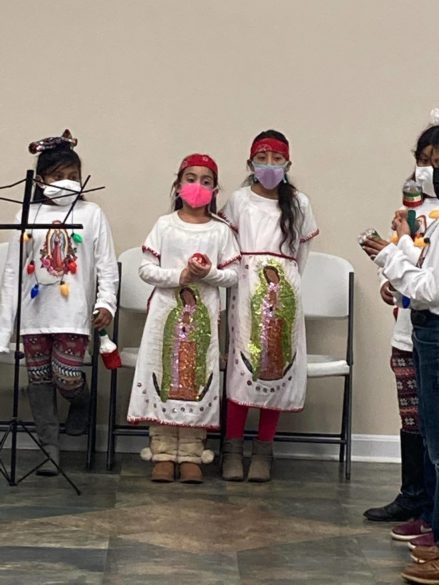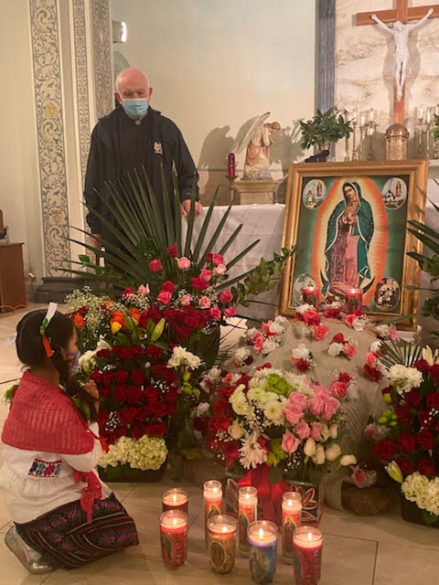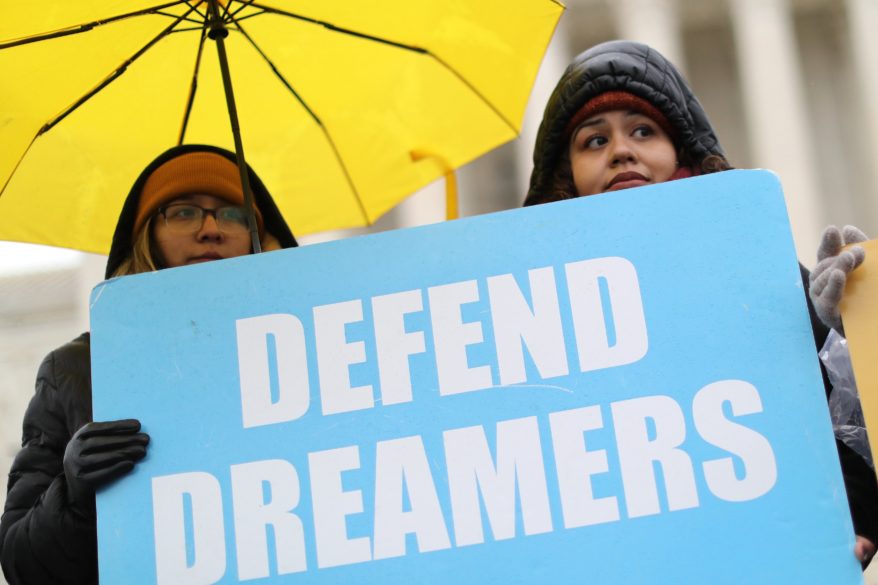By Carol Glatz
VATICAN CITY (CNS) – No pandemic and no kind of crisis can extinguish the light of Christ, Pope Francis said.
May people let his light into their heart “and let us lend a hand to those who need it most. In this way God will be born anew in us and among us,” the pope said in his remarks after praying the Angelus with visitors gathered in St. Peter’s Square Dec. 6.
From his studio window of the apostolic palace, the pope indicated the 92-foot-tall spruce tree already standing in the square and the work underway setting up this year’s Nativity scene.
“These two signs of Christmas are being prepared, to the delight of children and adults, too,” in many homes around the world, he said.
“They are signs of hope, especially in this difficult time,” the pope said.
However, it is essential that people go beyond the symbols and embrace their meaning, which is Jesus – “the infinite goodness” that God revealed and made shine on the world, he added.
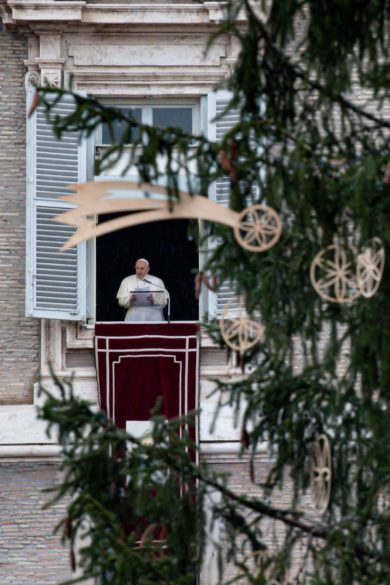
“There is no pandemic, there is no crisis that can extinguish this light,” he told the visitors who held umbrellas or were wearing rain gear under cloudy skies and alternating rain and drizzle.
Before the Angelus prayer, the pope spoke about Advent being a time to prepare for receiving the Lord at Christmas and, therefore, the need for conversion.
Conversion requires a change in “direction and orientation” as well as a change in one’s way of thinking.
One must be sorrowful for one’s sins and want to turn “from evil to good, from sin to love of God” forever, he said.
“To exclude sin, it is also necessary to reject everything that is connected to sin; the things that are connected to sin and that need to be rejected – a worldly mentality, excessive esteem for comforts, excessive esteem for pleasure, for well-being, for wealth,” he said.
Along with being detached from sin and worldliness, one must also be focused on searching for God and his kingdom, and seeking communion and friendship with God, he said.
“But this is not easy,” Pope Francis said.
“Temptation always pulls down, pulls down, and thus the ties that keep us close to sin: inconstancy, discouragement, malice, unwholesome environments, bad examples,” he said.
People may be tempted to become discouraged and believe it is impossible to truly convert.
“But it is possible” and people must avoid these discouraging thoughts as if they were “quicksand,” which will quickly mire one into a “mediocre existence.”
People must remind themselves that “no one can convert by his or own strength,” the pope said.
“It is a grace that the Lord gives you and thus we need to forcefully ask God for it” and “open ourselves up to the beauty, the goodness, the tenderness of God.”
“God is not a bad father, an unkind father, no. He is tender. He loves us so much, like the Good Shepherd, who searches for the last member of his flock,” the pope said.
“You begin to walk, because it is he who moves you to walk, and you will see how he will arrive. Pray, walk, and you will always take a step forward.”


